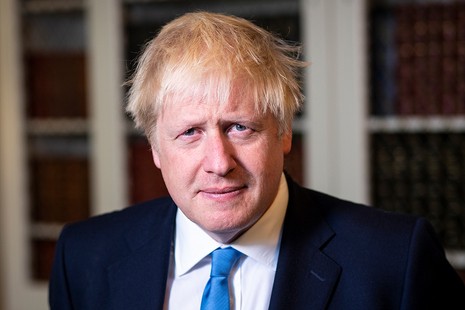By Ben Kerrigan-
As the latest phase of the Covid Inquiry unfolds, alarming revelations about the government’s early response to the Covid-19 outbreak have come to light, shedding new light on a period that saw a senior government official ominously warn that “thousands of people” could die.
The Covid Inquiry has taken a startling turn, following revelation that an unnamed senior government official visited No.10 Downing Street in early March 2020.
This official delivered a chilling message to the assembled ministers, declaring, “I think we are going to kill thousands of people.” The gravity of this statement is captured in a diary entry penned by Patrick Vallance, who, at the time, served as the government’s chief scientific adviser.
Vallance’s diary entries have unveiled a chaotic atmosphere inside Boris Johnson’s(pictured) Downing Street operation.
In a diary entry dated September 19, Vallance expressed his frustrations, remarking that Boris Johnson appeared to be “all over the place and so completely inconsistent.”
This insight provides a glimpse into the challenges of achieving consensus on critical measures, such as the initial lockdown. The revelation raises important potential questions about the prime minister’s leadership during the crucial early days of the pandemic.
However, it also potentially raises questions about whether the former prime minister was resisting pressure to authorize what some consider a questionable lockdown.
The inquiry also exposed a damning text message sent by Dominic Cummings, who once served as Johnson’s chief adviser, to a former Downing Street communications official. In the message, Cummings
claimed that Boris Johnson “doesn’t think it [the virus] is a big deal. He doesn’t think anything can be done.”
This dismissive stance by the former prime minister was revealed on the same day when the World Health Organization declared Europe the epicenter of the pandemic. It raises concerns about whether the government was taking the situation seriously enough and, more critically, whether timely actions were implemented.
The Delayed Lockdown and Cherry-Picked Advice
One of the most troubling aspects revealed by the inquiry was the delayed response of the UK government in imposing a nationwide lockdown.
While the World Health Organization sounded the alarm, the UK did not implement a lockdown until ten days later. This raises questions about whether decisive action could have mitigated the virus’s spread and saved lives.
The inquiry further alleges that No.10 Downing Street “cherry-picked” and “rewrote” scientific advice on social distancing as they prepared to lift lockdown restrictions in June 2020.
This practice, if confirmed, casts a shadow of doubt on the government’s commitment to following the best available scientific guidance and instead suggests a selective approach.
However, some analysts suggest Downing Street may itself have been skeptical of the extent of control which had accompanied the pandemic, given known exaggerations of hospitalizations at the height of the pandemic.
Boris Johnson’s Cynical Stance on Long Covid Claims
In another controversial development, Boris Johnson’s skepticism surrounding claims about long Covid has come under scrutiny. Johnson was known to have written “bollocks” on certain long Covid-related reports
While it is essential for leaders to maintain a critical perspective, such dismissive language is deemed to amount to undermining the credibility of scientific findings and discourage further research into the debilitating condition of long Covid.
Some critics have pointed to the the swirling rumours of a hidden agenda by external forces on the international stage during the height of the pandemic.
Rishi Sunak, the Chancellor of the Exchequer, has also faced criticism for his refusal to provide financial support to low-wage workers forced to isolate during the pandemic. This refusal has left many workers in a vulnerable position, unable to afford necessary quarantine and isolation measures.
While the economic challenges of the pandemic were undeniable, this policy decision has raised questions about the government’s commitment to protecting the most vulnerable members of society.
Potential Mitigating Factors
While the revelations about the government’s early pandemic response are deeply troubling, it is worth noting that the government was overwhelmed by the unprecedented nature of the crisis, which might explain certain missteps and delays.
Additionally, concerns about the accuracy of information, particularly in light of several suspicious pressures is believed to have potentially contributed to decision-making difficulties.




